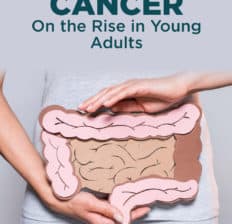This Dr. Axe content is medically reviewed or fact checked to ensure factually accurate information.
With strict editorial sourcing guidelines, we only link to academic research institutions, reputable media sites and, when research is available, medically peer-reviewed studies. Note that the numbers in parentheses (1, 2, etc.) are clickable links to these studies.
The information in our articles is NOT intended to replace a one-on-one relationship with a qualified health care professional and is not intended as medical advice.
This article is based on scientific evidence, written by experts and fact checked by our trained editorial staff. Note that the numbers in parentheses (1, 2, etc.) are clickable links to medically peer-reviewed studies.
Our team includes licensed nutritionists and dietitians, certified health education specialists, as well as certified strength and conditioning specialists, personal trainers and corrective exercise specialists. Our team aims to be not only thorough with its research, but also objective and unbiased.
The information in our articles is NOT intended to replace a one-on-one relationship with a qualified health care professional and is not intended as medical advice.
Analysis: Late-Stage Colon Cancer on Rise in Young Adults
February 18, 2022

Just last year, the Centers for Disease Control and Prevention (CDC) lowered the recommended age for colorectal cancer screening from 50 to 45. The CDC did this after years of research and analysis determined that colorectal cancer rates have been increasing among young people both in the United States and across the globe.
Unfortunately, these trends don’t appear to be going in the opposite direction anytime soon. In fact, a new peer-reviewed study found that, even more alarmingly, late-stage colon cancer is on the rise in young adults.
Study: Late-Stage Colon Cancer in Young Adults on the Rise
The study, “Shifts in the Proportion of Distant Stage Early-Onset Colorectal Adenocarcinoma in the United States,” was published in the February 2022 edition of the American Association for Cancer Research’s Cancer Epidemiology, Biomarkers & Prevention journal. For the study, researchers from New Orleans, New York and Colorado analyzed 2000–2016 Surveillance Epidemiology and End Results data among 103,975 patients with adenocarcinoma, an aggressive form of cancer that usually is not diagnosed until it reaches later stages.
The study authors compared results from 2000–2002 to results from 2014–2016 among four age subsets: 20–29, 30–39, 40–49 and 50–54-year-olds. They also made determinations on colon-only adenocarcinoma, rectal-only adenocarcinoma and colorectal adenocarcinoma (both colon and rectal cancer).
Here is what they found:
- Colon-only, distant (late-stage spread) adenocarcinoma increased 49% in 30–39-year-olds.
- Rectal-only, distant cancer increased 133% in 20–29-year-olds, 97% in 30–39-year-olds and 48% in 40–49-year-olds.
- In addition, colorectal cancer distant-stage proportions saw the largest increases in 20–29-year-olds.
They also found rates increased more in Black and Hispanic patients.
The researchers ultimately concluded:
Youngest patients show greatest burdens of distant colorectal adenocarcinoma. Although affecting all races, burdens are higher in NHB and Hispanic subgroups, although case counts remain relatively low.
Optimizing earlier screening initiatives and risk-stratifying younger patients by symptoms and family history are critical to counteract rising distant stage disease.
This analysis did not look at the causes or reasons why colon cancer in young adults and all adults is rising, but we know genetics and lifestyle factors play a role. Some common causes and risk factors for colorectal cancer include:
- obesity
- consumption of processed meats
- low levels of physical activity
- fiber deficiency
How to Help Prevent Colorectal Cancer
As the study suggests, it’s imperative that anyone who notices potential colon cancer symptoms — including abdominal pain, cramping, bloating, discomfort, changes in bowel habits and stool consistency, bloody stool, weakness, fatigue, changes in appetite, etc. — should see a doctor and get a colorectal cancer screening. In addition, once you turn 45, the CDC recommends getting a colonoscopy every 10 years, and high-risk patients may need screening at a younger age and more frequent testing.
Of course, doing everything you can to decrease your risk and help prevent colon cancer is your best bet. Here are some natural ways to help stave off colon and rectal cancers and hopefully help reverse the trend of colon cancer in young adults rising:
- Eat more fiber- and antioxidant-rich foods.
- Maintain a healthy weight.
- Move your body through exercise and activity, and avoid a sedentary lifestyle.
- Drink less alcohol, and don’t smoke.
- Treat underlining gut issues.
- Eat a healthy, anti-inflammatory diet, and avoid processed, cancer-causing foods.
- Keep your doctor up to date and informed on your own medical history and your family’s medical history, particularly a history of cancer.
Conclusion
- A new study found that late-stage colon cancer in young adults is on the rise.
- By comparing available data on adenocarcinoma patients across 16 years, researchers found large increases in rates among patients aged 20–54. The largest increases came in 20–29-year-olds, and rates also appeared to increase more among Black and Hispanic patients.
- Genetics and lifestyle factors, including obesity, poor diet, lack of exercise and low fiber intake, play a role in colorectal cancer.
- The CDC recommends every adult should be screened for colon cancer starting at age 45.
- In addition, eating a healthier diet, watching your weight, exercising and treating underlining health issues can help lower your risk for colorectal and several other forms of cancer.












